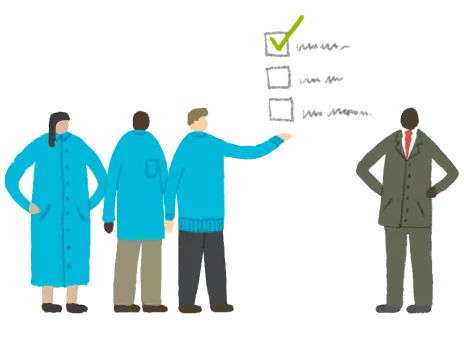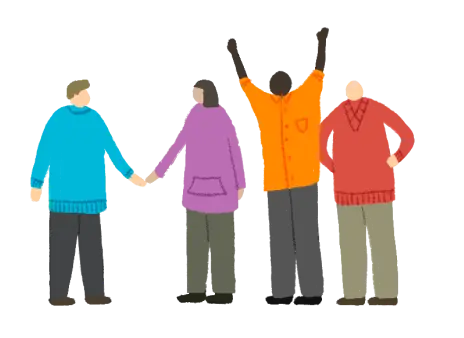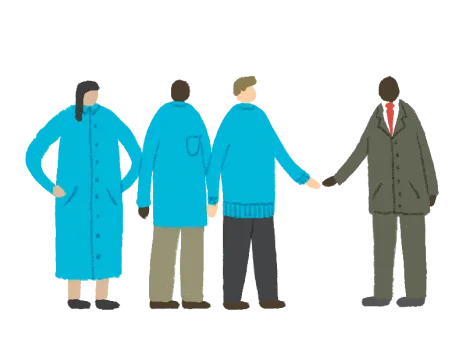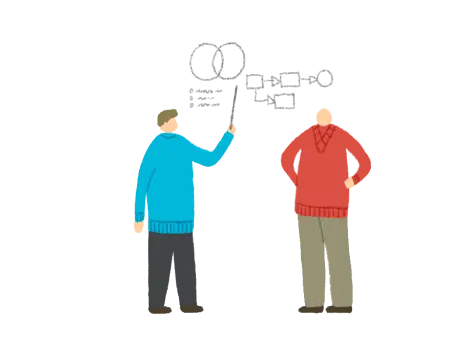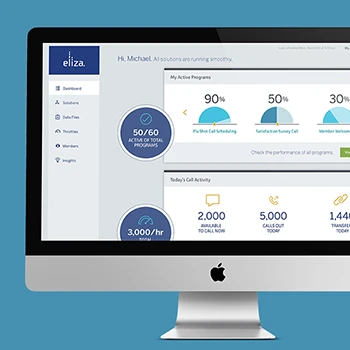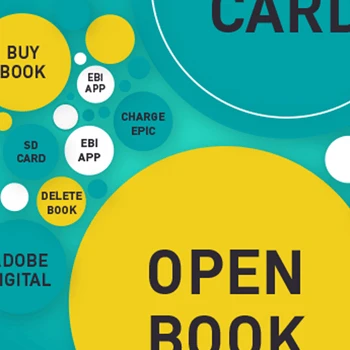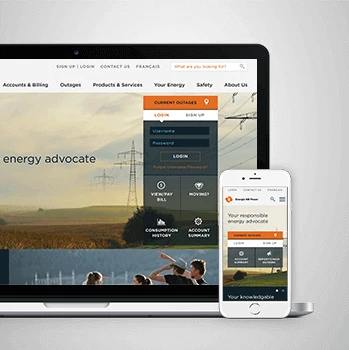What exactly is a UX discovery workshop and why would our organization need one?
A UX discovery workshop is an intensive, collaborative session that helps your organization uncover user needs, business challenges, and innovation opportunities before committing to design and development. Using our Experience Thinking framework, we examine how people experience your brand, content, products, and services to identify gaps and define solutions. These workshops prevent costly mistakes by ensuring you design and build what users actually need.
Tip: Schedule discovery before any major product initiative to validate assumptions and align stakeholders around user-centered goals.
How does Akendi's Experience Thinking approach differ from traditional discovery methods?
Our Experience Thinking framework addresses four connected experience areas: brand, content, product, and service - rather than focusing on just one touchpoint. This holistic approach, developed by our founder Tedde van Gelderen, ensures we design complete experience lifecycles from customer awareness through long-term advocacy. Traditional methods often miss critical connections between experience elements that can make or break user satisfaction.
Tip: Consider how your current discovery approach addresses all four experience quadrants, not just product functionality.
What makes these workshops different from internal brainstorming sessions?
While brainstorming generates ideas, discovery workshops use proven research methodologies to validate assumptions with real user data. We apply both divergent and convergent thinking techniques, combined with rapid prototyping and user feedback loops. Our facilitators bring decades of cross-industry experience and systematic approaches that move beyond opinion to evidence-based insights.
Tip: Effective discovery requires external perspective to challenge internal assumptions and biases that naturally develop within organizations.
How do you incorporate foresight design into discovery workshops?
Foresight design means anticipating future user needs before they emerge. In our workshops, we use scenario planning and trend analysis to explore how user behaviors might evolve, ensuring your solutions remain relevant as markets change. We examine emerging technologies, demographic shifts, and behavioral patterns to design experiences that work today and adapt for tomorrow.
Tip: Balance current user needs with future trends to create solutions that provide lasting competitive advantage.
What types of challenges are best suited for discovery workshops?
Discovery workshops excel when you're exploring new product ideas, entering new markets, addressing user satisfaction issues, or aligning diverse stakeholder perspectives. They're particularly valuable for complex challenges where user needs aren't obvious or when technical possibilities need to align with business goals. The collaborative format works best for wicked problems that require creative exploration.
Tip: Discovery workshops provide maximum value for challenges that impact multiple user types or business functions simultaneously.
How do workshops address the connection between individual products and overall experience strategy?
Using Experience Thinking principles, we examine how individual touchpoints contribute to end-to-end user journeys. Each workshop maps connections between brand perception, content consumption, product interaction, and service delivery to ensure consistent experience quality. This prevents the common problem of optimizing individual elements while missing systemic experience breakdowns.
Tip: Map your current initiatives against the complete user lifecycle to identify disconnected efforts that could benefit from integrated discovery.
What role does empathy play in your discovery process?
Empathy is foundational to our approach, helping participants understand user perspectives beyond their own assumptions. We use empathy-building exercises, persona development, and journey mapping to create emotional connections with user experiences. This human-centered focus ensures solutions address real needs rather than perceived problems, leading to more successful outcomes.
Tip: Genuine empathy development requires observing actual user behavior, not just discussing user needs in conference rooms.
What specific methodologies and tools do you use in discovery workshops?
Our workshops combine user research techniques, design thinking methods, and strategic planning tools. We use persona development, journey mapping, affinity diagramming, rapid prototyping, and concept testing. Each session is tailored to your specific challenge, but always includes both divergent exploration and convergent decision-making phases to ensure actionable outcomes.
Tip: Effective discovery requires multiple research methods to triangulate insights and validate findings across different user perspectives.
How do you balance exploration with the need for concrete results?
We structure workshops using our proven framework that alternates between broad exploration and focused synthesis. Early activities generate many possibilities using divergent thinking, then we converge into specific solutions through prioritization exercises and feasibility assessment. This approach, detailed in our Experience Thinking methodology, ensures creativity leads to implementable outcomes.
Tip: Set clear success criteria before workshops begin, defining what specific decisions or outputs you need to move forward confidently.
What's your approach to rapid prototyping during discovery sessions?
We create low-fidelity prototypes that allow quick testing of concepts without significant time investment. These might include paper sketches, digital mockups, or service blueprints that help participants visualize ideas and gather immediate feedback. Prototyping during discovery helps identify potential issues early and builds stakeholder confidence in proposed directions.
Tip: Focus prototyping efforts on the core user value proposition rather than detailed interface elements during discovery phases.
How do you ensure workshops generate genuine insights rather than confirming existing beliefs?
Our facilitators actively challenge assumptions through structured exercises that surface conflicting perspectives and hidden biases. We introduce external user data, competitive research, and systematic questioning techniques that push beyond comfortable conclusions. The Experience Thinking framework specifically designed to reveal blind spots in organizational thinking.
Tip: Prepare your team for insights that might contradict current plans - the most valuable discoveries often challenge existing assumptions.
What role does competitive analysis play in your discovery approach?
We examine competitive experiences not just to benchmark features, but to understand how users experience similar solutions across the market. This analysis helps identify differentiation opportunities and reveals user expectations shaped by existing products. We focus on experience patterns and user mental models rather than just functionality comparisons.
Tip: Analyze how competitors handle complete user journeys, not just individual features, to identify gaps in market experience offerings.
How do you handle situations where user needs conflict with business constraints?
We facilitate open discussions about trade-offs while maintaining focus on user value creation. Our Experience Thinking approach helps identify creative solutions that meet both user needs and business requirements by examining all four experience quadrants. Often, apparent conflicts resolve when we find alternative approaches that serve both priorities.
Tip: Frame constraint discussions around user impact rather than internal limitations to maintain user-centered focus while addressing business realities.
What methods do you use to incorporate foresight design thinking into current user research?
Foresight design requires examining current user behavior through the lens of emerging trends and future scenarios. We use trend analysis, demographic projection, and technology roadmapping to anticipate how user needs might evolve. This forward-looking perspective helps design solutions that remain relevant as market conditions change, preventing obsolescence.
Tip: Dedicate specific workshop time to exploring how user needs might change rather than only addressing current frustrations and requirements.
How do discovery workshops reduce product development risk?
By validating ideas with real users before development begins, workshops prevent costly mistakes and iterations later in the process. Our Experience Thinking approach ensures all aspects of the user experience align before resources are committed. Early user feedback identifies potential problems when they're still easy and inexpensive to fix.
Tip: Calculate the cost of discovering problems during development versus discovery - workshops typically prevent expenses that are orders of magnitude larger.
What specific business outcomes can we expect from discovery workshops?
Organizations typically see clearer product vision, aligned stakeholder understanding, reduced development iterations, faster time-to-market, and higher user satisfaction scores. Our Experience Thinking framework helps identify opportunities for competitive differentiation and revenue growth by creating more compelling user experiences that drive engagement and loyalty.
Tip: Define specific business metrics you want to impact before the workshop, then design discovery activities that address those particular outcomes.
How do workshops help align diverse stakeholder perspectives?
Our facilitated process creates shared understanding by giving all participants direct exposure to user insights and collaborative problem-solving experiences. The Experience Thinking framework provides common language and mental models that help different departments see how their work connects to user outcomes. This alignment prevents conflicting priorities during development.
Tip: Include stakeholders who have decision-making authority to ensure workshop insights can be implemented without additional approval cycles.
What's the relationship between discovery workshops and overall digital transformation initiatives?
Discovery workshops provide the user-centered foundation that successful digital transformations require. Our Experience Thinking approach ensures transformation efforts improve actual user experiences rather than just implementing new technology. We help organizations understand which digital capabilities will create meaningful user value versus those that only serve internal efficiency goals.
Tip: Use discovery workshops early in transformation planning to ensure user needs drive technology decisions rather than technology driving user experience compromises.
How do you measure the success and impact of discovery workshops?
We track both immediate outcomes like stakeholder alignment and decision clarity, plus longer-term impacts including development efficiency, user satisfaction improvements, and business metric changes. Our approach includes establishing baseline measurements and follow-up assessments to quantify workshop value and identify areas for additional support.
Tip: Establish clear success metrics before workshops begin, including both qualitative stakeholder feedback and quantitative business impact measures.
How do workshops contribute to building organizational UX maturity?
Beyond immediate project outcomes, workshops transfer user-centered thinking skills to your team and demonstrate UX methodology value to leadership. Participants learn research techniques, design thinking processes, and collaborative problem-solving approaches they can apply to future challenges. This capability building accelerates overall organizational UX maturity.
Tip: Select workshop participants who can become internal UX advocates and continue applying user-centered approaches in their regular work.
What's the connection between discovery insights and long-term customer relationship building?
Discovery reveals not just immediate user needs but the underlying motivations that drive long-term loyalty. Using Experience Thinking principles, we identify opportunities to create emotional connections and deliver ongoing value that transforms customers into advocates. This lifecycle perspective helps build sustainable competitive advantages through experience differentiation.
Tip: Focus discovery efforts on understanding user motivation and values, not just functional requirements, to identify relationship-building opportunities.
What duration options are available and how do I choose the right one?
We offer 0.5, 1, and 2-day discovery workshop formats. Half-day sessions work for focused challenges with clear scope, full-day workshops handle more complex problems requiring deeper exploration, and two-day formats allow for comprehensive user research integration and detailed solution development. Duration depends on problem complexity and stakeholder availability.
Tip: Consider stakeholder energy and attention span alongside problem complexity - sometimes multiple shorter sessions work better than one intensive session.
How many participants should we include and what roles are most important?
Optimal workshop size is 6-12 participants to ensure everyone can contribute while maintaining productive dynamics. Include decision-makers, user-facing staff, technical experts, and subject matter specialists. Our Experience Thinking approach works best when multiple perspectives are represented, but group size must allow for meaningful participation from everyone.
Tip: Include participants who have direct user contact or customer service experience alongside leadership and technical staff for balanced perspectives.
What preparation is required from our team before the workshop?
We typically conduct stakeholder interviews and review existing user research, business documentation, and current solutions before workshops begin. Participants should familiarize themselves with any provided background materials and come prepared to share their perspectives openly. We handle most preparation work to minimize your team's upfront time investment.
Tip: Gather any existing user feedback, analytics data, or research findings beforehand - even informal insights can provide valuable workshop starting points.
Can workshops be conducted remotely or do they require in-person participation?
We facilitate effective discovery workshops both remotely and in-person using collaborative tools and structured activities adapted for each format. Remote workshops can include participants from multiple locations and often work well for distributed organizations. In-person sessions provide different energy and interaction opportunities. Format choice depends on participant locations and collaboration preferences.
Tip: Consider your team's existing comfort level with remote collaboration tools when choosing format - successful workshops require active participation from all attendees.
What outputs and deliverables can we expect from discovery workshops?
Workshops produce documentation including user insights summaries, opportunity maps, prioritized recommendations, next-step action plans, and often low-fidelity prototypes or concepts. We format deliverables for easy sharing with broader organizational stakeholders and as foundation for subsequent development phases. All outputs are designed for practical application rather than just documentation.
Tip: Discuss deliverable formats that work best for your organization's planning and development processes before workshops begin.
How do you customize workshops for different industry contexts?
Our Experience Thinking framework adapts to any industry, but we tailor specific methods, examples, and outputs to your business context. With experience across technology, energy, media, and other sectors serving 220+ clients, we understand industry-specific challenges and regulatory considerations that impact user experience design approaches.
Tip: Share industry-specific constraints or requirements during workshop planning so we can incorporate relevant considerations into activities and recommendations.
What follow-up support is available after discovery workshops conclude?
We provide ongoing consultation to help implement workshop recommendations, additional research support, design development services, and coaching for internal capability building. Many organizations benefit from continued partnership as they move from discovery insights into design and development phases, ensuring momentum from workshop outcomes continues.
Tip: Plan for post-workshop implementation support during initial discussions to ensure insights translate into action rather than remaining as documentation.
How do you facilitate productive collaboration between technical and non-technical participants?
Our structured activities create common ground by focusing on user outcomes rather than technical implementation details initially. We use visual tools, shared vocabulary, and facilitation techniques that help all participants contribute their expertise while understanding others' perspectives. The Experience Thinking framework provides neutral language that bridges different professional backgrounds.
Tip: Brief participants beforehand about the collaborative nature of workshops and emphasize that diverse perspectives strengthen outcomes rather than create conflicts.
What's your approach to managing conflicting opinions during workshops?
We acknowledge different viewpoints as valuable input while using structured exercises to explore underlying assumptions and evidence behind conflicting positions. Our facilitation techniques help transform disagreements into productive exploration of alternatives. Often conflicts resolve when we examine user evidence or explore creative solutions that address multiple concerns simultaneously.
Tip: Frame conflicting opinions as different hypotheses to test rather than positions to defend - this shifts focus from winning arguments to finding solutions.
How do you ensure all participants contribute equally during sessions?
We use varied participation formats including individual reflection, small group activities, and structured discussion techniques that encourage contributions from different personality types. Our facilitators actively manage participation to ensure quieter voices are heard while preventing any individual from dominating conversations. Workshop design alternates between different engagement styles.
Tip: Prepare introverted participants by sharing workshop agendas in advance so they can formulate thoughts before group discussions begin.
What happens when workshops reveal fundamental disagreements about user needs or business direction?
These discoveries are valuable outcomes that prevent later conflicts during development. We help organizations address fundamental disagreements through additional user research, stakeholder interviews, or strategic alignment sessions. Our Experience Thinking approach often reveals solutions that satisfy different perspectives by examining all experience quadrants comprehensively.
Tip: View fundamental disagreements as important discoveries rather than workshop failures - resolving these issues early prevents much larger problems later.
How do you handle situations where senior leadership has predetermined solutions?
We respectfully challenge predetermined solutions by introducing user evidence and facilitating exploration of alternatives. Our approach validates good ideas while revealing potential problems or missed opportunities. Leadership often appreciates discovering issues before committing resources, and we present findings in ways that support informed decision-making rather than undermining authority.
Tip: Frame workshops as validation and optimization opportunities for existing ideas rather than challenges to leadership decisions to maintain productive collaboration.
What role does organizational culture play in workshop effectiveness?
Culture significantly impacts workshop dynamics and outcomes. Organizations with open communication and learning orientations typically see stronger results. We adapt facilitation approaches to work within existing cultural norms while gently pushing toward more user-centered thinking. Sometimes workshops themselves help shift culture toward greater collaboration and external focus.
Tip: Assess your organization's comfort level with open debate and creative exploration when planning workshop formats and setting expectations.
How do you incorporate foresight design principles into team collaboration exercises?
Foresight design requires exploring future scenarios collaboratively, which means helping different functions understand how emerging trends might impact their areas. We use scenario planning exercises that get marketing, technology, and operations perspectives on potential futures, creating shared vision of challenges and opportunities ahead.
Tip: Include participants who track industry trends or emerging technologies to provide informed perspectives on potential future developments during foresight activities.
How do you ensure workshop insights translate into actionable implementation plans?
We conclude workshops with concrete next-step planning that assigns responsibilities, timelines, and success measures. Our Experience Thinking approach helps prioritize actions based on user impact and implementation feasibility. We work with your team to create realistic roadmaps that build momentum from workshop energy while addressing practical constraints.
Tip: Identify specific individuals who will champion implementation before workshops conclude, ensuring accountability for translating insights into action.
What validation methods do you recommend for concepts developed in workshops?
We suggest testing approaches appropriate to concept maturity, from quick user interviews for early ideas to more structured usability testing for developed concepts. Our validation recommendations consider your timeline, budget, and risk tolerance. Often simple validation methods provide sufficient confidence to proceed while more complex concepts require formal research.
Tip: Plan validation activities during workshops rather than as afterthoughts to ensure insights can be tested quickly while workshop momentum continues.
How do workshops connect to broader product development processes?
Discovery workshops provide user-centered foundation for agile development, design thinking processes, and strategic planning initiatives. Our Experience Thinking framework integrates with existing development methodologies while ensuring user needs remain central throughout implementation. We help connect workshop outputs to your team's current workflows and planning cycles.
Tip: Schedule workshops to align with natural planning cycles and decision points in your development process for maximum integration value.
What support do you provide for communicating workshop results to broader organizational stakeholders?
We help develop presentation materials, executive summaries, and communication strategies for sharing workshop insights with stakeholders who didn't participate directly. Our approach emphasizes business impact and user value rather than design process details. Communication materials are tailored for different audience needs and decision-making contexts.
Tip: Identify key stakeholders who will need workshop results before sessions begin, then tailor documentation and presentation formats to their specific information needs.
How do you measure progress on implementing discovery workshop recommendations?
We establish success metrics during workshops and provide frameworks for tracking implementation progress. Measurement approaches include stakeholder check-ins, user feedback collection, and business metric monitoring. Our Experience Thinking methodology helps identify leading indicators that predict successful outcomes before final results are measurable.
Tip: Establish both short-term implementation milestones and longer-term outcome measures to maintain momentum while tracking ultimate success.
What happens when implementation reveals that workshop recommendations need adjustment?
This is normal and expected - workshops provide starting points for iterative improvement rather than final solutions. We help organizations adapt recommendations based on implementation learning while maintaining focus on user value creation. Our Experience Thinking approach provides frameworks for making adjustments while preserving core insights and user-centered direction.
Tip: Plan for iteration and refinement from the beginning rather than treating changes as failures - learning and adaptation demonstrate good user-centered practice.
How do discovery workshops help organizations develop internal UX capabilities?
Workshops transfer practical UX methods to participants while demonstrating how user-centered thinking improves outcomes. We provide methodology explanations, template tools, and coaching that help organizations continue applying discovery approaches independently. Many clients develop internal facilitation capabilities after experiencing our workshop approaches firsthand.
Tip: Identify participants who could become internal UX champions and provide them with additional methodology explanation and resource recommendations.
How do discovery workshops inform long-term product strategy and roadmap planning?
Workshops reveal user needs that extend beyond immediate features to strategic direction and market positioning. Our Experience Thinking framework helps identify opportunities for sustainable competitive advantage through experience differentiation. Discovery insights inform multi-year strategic planning by revealing evolving user expectations and emerging market opportunities.
Tip: Connect discovery insights to business strategy discussions rather than treating them as purely tactical design input to maximize strategic value.
What's the relationship between discovery workshops and overall experience strategy development?
Discovery provides foundational user understanding that experience strategy requires, while experience strategy provides context that makes discovery insights actionable. Our Experience Thinking approach ensures discovery addresses all experience touchpoints rather than isolated product features. This integration prevents strategic blind spots and ensures consistent experience delivery.
Tip: Schedule discovery workshops as part of broader experience strategy initiatives rather than isolated tactical activities to maximize strategic integration.
How do workshops help identify new market opportunities and innovation potential?
By examining unmet user needs and experience gaps, workshops often reveal opportunities that extend beyond current product offerings. Our Experience Thinking methodology specifically looks for innovation possibilities across brand, content, product, and service experiences. These insights frequently identify new revenue streams and competitive positioning opportunities.
Tip: Include participants with business development or strategy responsibilities to ensure innovation opportunities can be evaluated against organizational capabilities and market position.
What role does foresight design play in strategic workshop planning?
Foresight design helps workshops address not just current user needs but anticipated future requirements. We examine demographic trends, technology evolution, and behavioral shifts that might impact user expectations over your strategic planning horizon. This forward-looking perspective prevents strategies from becoming obsolete as market conditions change.
Tip: Include trend analysis and scenario planning in strategic workshops to ensure recommendations remain relevant throughout implementation timelines.
How do you help organizations prioritize multiple opportunities discovered during workshops?
We use structured prioritization frameworks that balance user impact, business value, and implementation feasibility. Our Experience Thinking approach helps identify opportunities that create synergistic benefits across multiple experience touchpoints. Prioritization considers both immediate wins and longer-term strategic positioning benefits.
Tip: Develop clear prioritization criteria before workshops begin, including business impact, user value, and resource requirements to enable informed decision-making.
What's your approach to addressing organizational change management needs identified during discovery?
Discovery often reveals that experience improvements require organizational changes alongside design improvements. We help identify change management needs and develop approaches for addressing cultural, process, or structural barriers to user-centered design. Our Experience Thinking methodology provides frameworks for organizational transformation that supports experience goals.
Tip: Include organizational development or change management expertise in strategic discovery workshops when significant process changes seem likely.
How can AI enhance or impact the insights and outcomes from UX discovery workshops?
AI can accelerate data analysis, pattern recognition in user feedback, and synthesis of research findings, allowing more time for creative exploration and strategic thinking during workshops. However, AI cannot replace human empathy, creative problem-solving, and strategic judgment that drive breakthrough insights. We use AI tools to enhance human capabilities while maintaining focus on human-centered design principles.
Tip: Consider AI as a research and analysis accelerator rather than a replacement for human insight and creativity in discovery processes.




